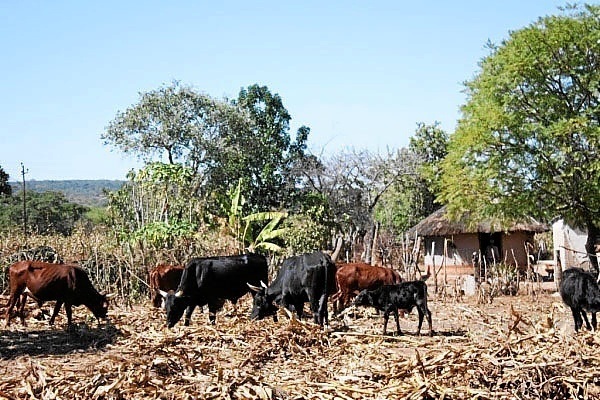
THE foot-and-mouth disease (FMD) which has claimed thousands of cattle in the country and affected the livestock industry, is a result of the “chaotic” land reform programme, analysts have said.
BY MTHANDAZO NYONI
Zimbabwe has experienced regular outbreaks of the disease in recent times in cattle-rich regions of Matabeleland and Midlands, which have adversely affected the industry as the country is an exporter of meat.
Zimbabwe suspended beef exports to the European Union and other countries in 2001 when the Cold Storage Company — at one time the largest meat processor in Africa — collapsed partly due to persistent outbreaks of foot-and-mouth disease.
In April this year, the deadly disease struck in Matabeleland and Midlands regions, leaving a trail of destruction.
Analysts and industry officials interviewed by The Standard said FMD had paralysed the livestock sector in the country and government needed to act proactively. Some people blamed government’s land reform exercise for the disease outbreak.
“It’s a result of the land reform programme and breaking down of law and order,” said John Robertson, a renowned economic commentator.
“During the land reform programme, farmers vandalised the fences used to minimise the movement of cattle from one area to another and as a result, cattle are now moving around unrestricted,” he added.
- Chamisa under fire over US$120K donation
- Mavhunga puts DeMbare into Chibuku quarterfinals
- Pension funds bet on Cabora Bassa oilfields
- Councils defy govt fire tender directive
Keep Reading
Robertson said the country used to earn millions of dollars from the exports, but that had become a thing of the past.
“Before the land reform programme, we used to exported beef to Europe. We used to earn about $100 million in beef exports as we were exporting thousands kilogrammes of beef to the European Union, but we are no longer earning that money.”
“People don’t have money to pay for the beef. Most of the abattoirs are no longer working and many are being slaughtered in the bush and that doesn’t help the government. We have lost thousands of billions as a result of this,” he added.
Abattoirs Association of Zimbabwe chairperson Godfrey Chanetsa concurred, saying some feedlots had been closed due to FMD.

“Some feedlots have ceased operations as a result of FMD and as an industry, we have been seized with the matter, working with the ministry [Agriculture] and we have been told that the ministry is on top of the matter now,” Chanetsa said.
He urged the government to be proactive all the time to avoid such preventable occurrences.
Beitbridge veterinary officer Mike Nare said everything was under control in his area. He said they had vaccinated close to 70 000 cattle since the outbreak of the disease and his teams were still going around educating villagers, abattoirs and farmers on the prevention of FMD.
Repeated efforts to obtain comment from Agriculture (livestock) deputy minister Paddy Zhanda were fruitless as his mobile phone was not reachable.
FMD has had catastrophic effects in the country since its outbreak in April this year. Many cattle exhibitions in the country, like the Zimbabwe International Trade Fair and Agricultural Shows, were seriously affected.
In April, the veterinary services department in the Midlands suspended cattle trade in parts of the province due to the outbreak of FMD. The department also banned the exhibition of cattle at this year’s edition of the Midlands Agricultural Show in an effort to contain the spread of the disease.
The move was aimed at blocking movement of cattle within the region to prevent the disease from spreading further to other parts of the province and the country at large.
Gokwe South and North districts were the worst affected areas, with some local farmers losing many cattle to the disease.
The same was also witnessed at the Matabeleland South Agricultural Show where very few cattle were brought for the exhibition due to FMD.
The Veterinary Services Department revealed earlier in July that more than 28 000 cattle had been vaccinated against the disease in Midlands province, but fears were rampant that animal movements in the area could trigger another outbreak.
The vaccination programme has seen 18 000 cattle being vaccinated in Gweru alone despite that there are no reported cases in the area.
In July this year, government took drastic measures to curb the spread of the disease, with Zhanda announcing that the issuing out of new licences for abattoirs had been frozen. He accused abattoirs of playing a big role in the spread of FMD.
He said private abattoirs were ignoring cattle movement restrictions from areas where there was a foot-and-mouth outbreak, all for the love of money.











